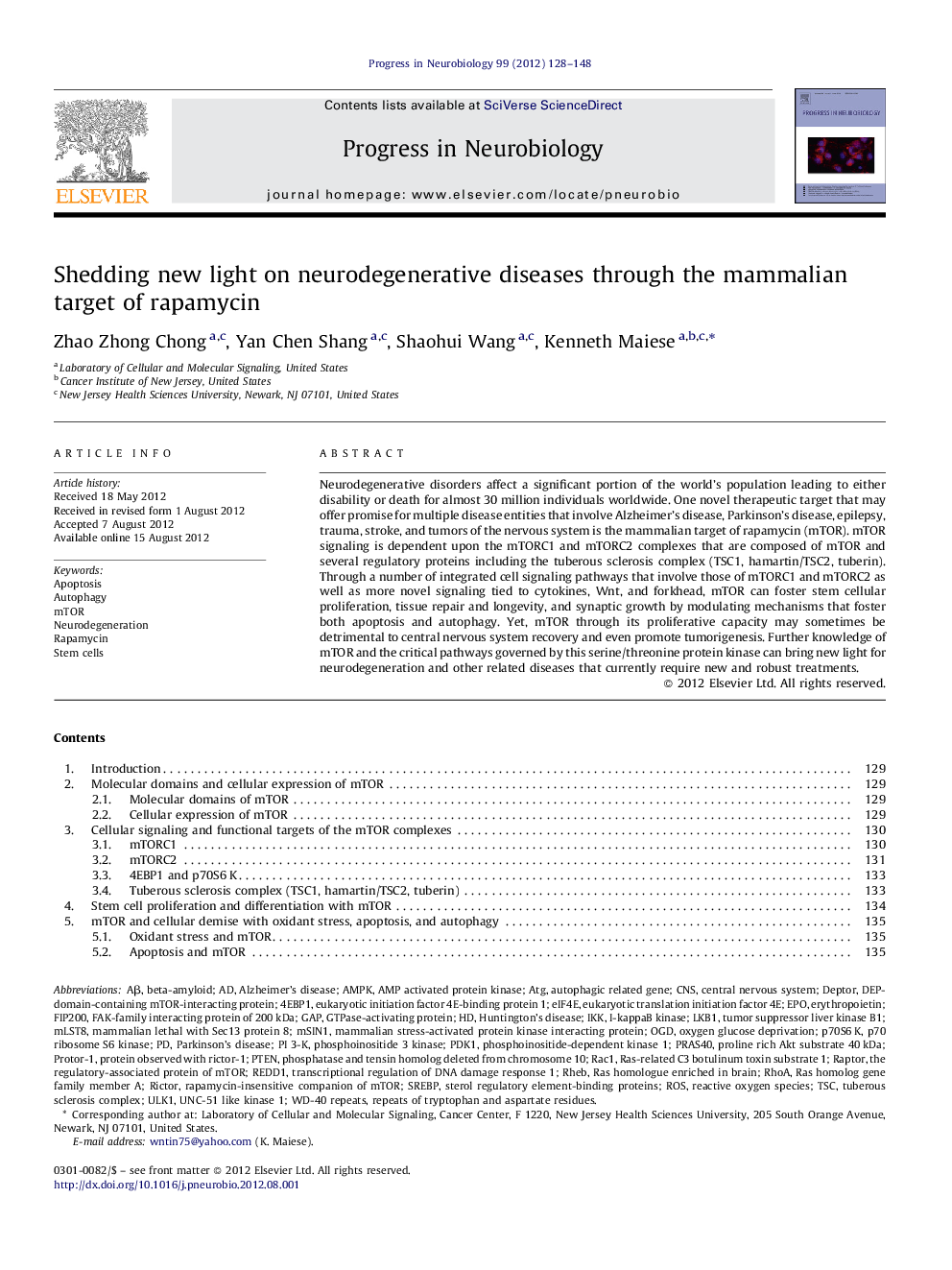| Article ID | Journal | Published Year | Pages | File Type |
|---|---|---|---|---|
| 4353421 | Progress in Neurobiology | 2012 | 21 Pages |
Neurodegenerative disorders affect a significant portion of the world's population leading to either disability or death for almost 30 million individuals worldwide. One novel therapeutic target that may offer promise for multiple disease entities that involve Alzheimer's disease, Parkinson's disease, epilepsy, trauma, stroke, and tumors of the nervous system is the mammalian target of rapamycin (mTOR). mTOR signaling is dependent upon the mTORC1 and mTORC2 complexes that are composed of mTOR and several regulatory proteins including the tuberous sclerosis complex (TSC1, hamartin/TSC2, tuberin). Through a number of integrated cell signaling pathways that involve those of mTORC1 and mTORC2 as well as more novel signaling tied to cytokines, Wnt, and forkhead, mTOR can foster stem cellular proliferation, tissue repair and longevity, and synaptic growth by modulating mechanisms that foster both apoptosis and autophagy. Yet, mTOR through its proliferative capacity may sometimes be detrimental to central nervous system recovery and even promote tumorigenesis. Further knowledge of mTOR and the critical pathways governed by this serine/threonine protein kinase can bring new light for neurodegeneration and other related diseases that currently require new and robust treatments.
► mTOR is an integral component of mTORC1 and mTORC2. ► mTOR modulates both apoptosis and autophagy during oxidative stress. ► mTOR is vital for stem cell maturation, proliferation, and differentiation. ► mTOR impacts both cognitive and motor disorders of the nervous system. ► mTOR degree of activation can affect cellular survival, demise, and tumorigenesis.
